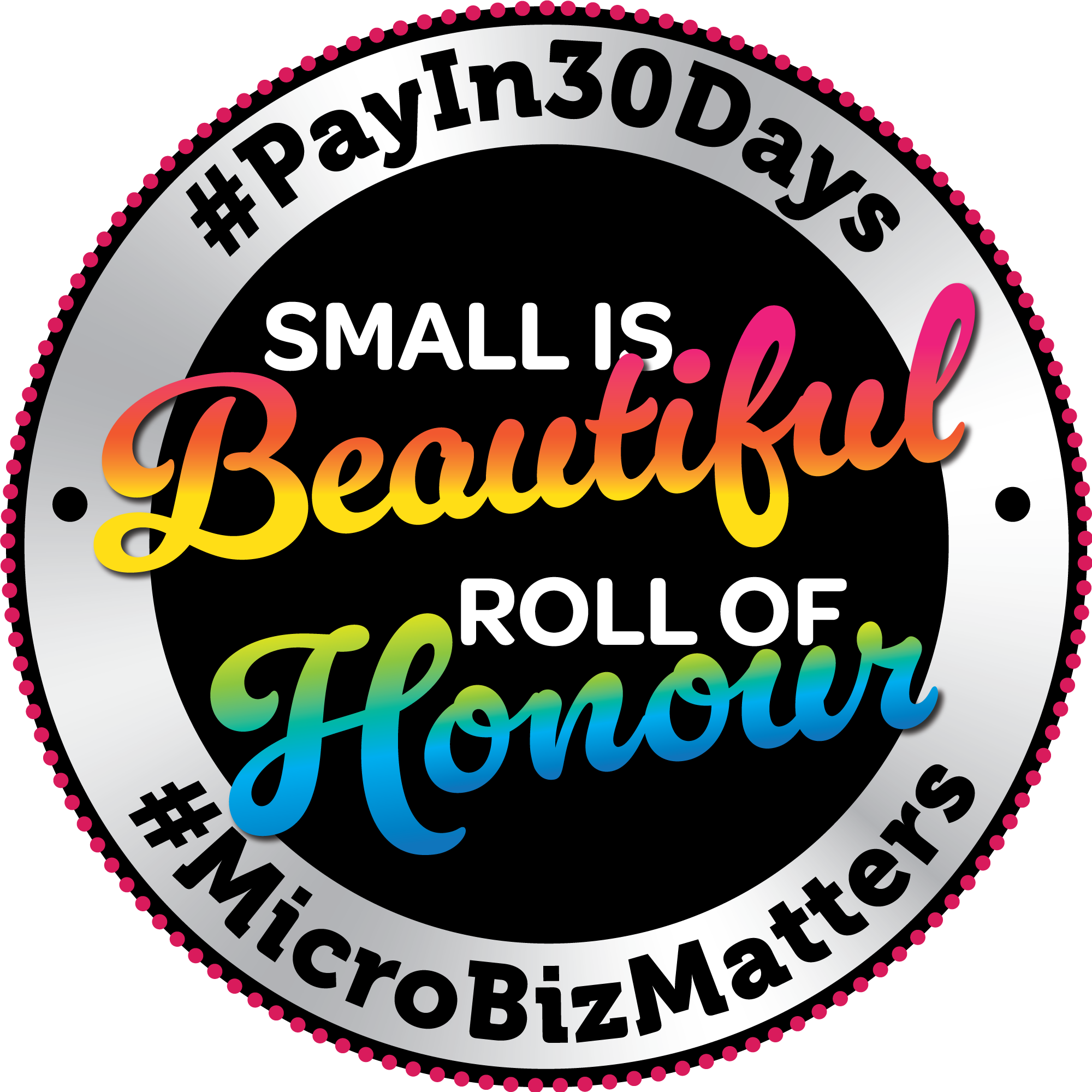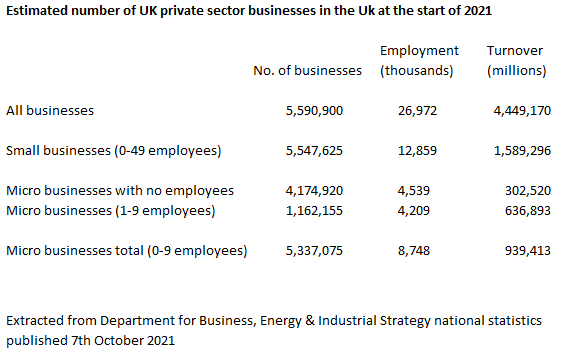
Could micro and small businesses really provide a big part of the solution to the challenges we face in our fractured world?
By Jill Poet
The theme for World Values Day 2022 is Values for the Community. This article looks at how that theme relates to micro and small businesses and, more precisely, considers why small businesses
might have the power to change the world. How they might play a crucial role in reducing inequalities, building stronger communities and a more united world.
The Organisation for Responsible Businesses(ORB) launched in 2010 with a mission to “Change the world, one small business at a time” and a vision of “thriving, vibrant cities, towns and villages, where small businesses play a vital role in their local communities, contributing to social, environmental, and economic sustainability, and setting an example of ethical and responsible business behaviour in the UK and across the world.”
But before we examine how this could become a reality, we need to shine a light on current perceptions and important statistics.
When considering how business can be a force for good, invariably the focus falls on the big corporates and elicits discussions about CSR (Corporate Social Responsibility) and ESG (Environment, Social, Governance) policies and reports. Or frequently, Social Enterprise is touted as the solution to bring about transformative societal change.
Let’s put this in perspective. Firstly, according to Social Enterprise UK, there are over 100,000 social enterprises in the UK of varying sizes and spread across various business sectors. Most of these are excellent and are genuinely providing a positive societal impact in their chosen field, although there is no control on the social enterprise sector to ensure they are operating responsibly across all areas of their operations. Sadly, the motives of some organisations registered as social enterprises are questionable.
Those concerns aside, 100,000 social enterprises represent less than 2% of private sector businesses in the UK. Their role is important, but increasingly it seems that social enterprise it not the solution. That is partly because the distinction between a social enterprise and a ‘normal’ values-based business is now almost non-existent. Arguably, we should stop attempting to make that distinction and focus on organisations of all types operating ethically and responsibly, meeting and exceeding legislation, and always considering their impact on people (the workforce, the local community, society at large) and the environment.
But that is a conversation for another time. Let’s look at those statistics.

The following headline figures when the above data is further analysed will surprise most people and, perhaps, indicate part of the reason small businesses are so important:
Over 99 per cent of private businesses in the UK are small businesses with 0-49 employees, accounting for almost 48 per cent of employment, and nearly 36 per cent of private business turnover.
Over 95 per cent of private businesses in the UK are micro businesses with 0-9 employees, accounting for over 32 per cent of employment , and over 21 per cent of private business turnover.
And even for micro businesses with no employees account for almost 75 per cent of private businesses in the UK, accounting for almost 17 per cent of the populace in employment and contributing almost 7 per cent to total business turnover.

It is abundantly clear that small businesses, including the smallest of micro businesses, make a substantial contribution to the UK economy, and yet they are invariably treated as inferior to larger organisations; treated as if they are insignificant in the scheme of things.
Clearly that is not the case. And it needs to change.
It is micro and small businesses that are the engine room of the British economy, and it is those micro and small businesses that can cumulatively be a phenomenal power for good. Those businesses should be valued and supported by consumers, private, and public sectors alike.
Most small businesses and their employees are very much part of their local communities, often working from home or within proximity of their home address, thus avoiding the commute which reduces environmental impact, and ensuring profits and earnings stay within the local community. But that alone is merely a direct result of small business logistics and is a minor consideration in terms of potential positive impact.
There are and always will be certain individuals who are out to make a profit and concerned about little else. But that only accounts for a tiny percentage of small business owners. The majority are decent people who want to make a reasonable living for themselves and their family, but who also have an intrinsic desire to operate ethically and ‘do no harm.’ And unlike their corporate counterparts, they do not generally have independent shareholders clambering for dividends and excessive profits.
Yet business owners are increasingly moving from a do not harm approach to proactively wanting to make a positive contribution to society.
To a large extent, but certainly not solely, this is led by millennials who now seem to be walking away from great salary packages and impressive career trajectories by quitting corporate life in droves because company values – or the lack thereof – do not feed their souls.
The way many employees were treated by larger companies during the pandemic added to this exodus, making way for what some economists have dubbed the ‘Great Resignation’ with mid-lifers also leaving a toxic work culture to embrace a better work-life balance. Many of these individuals are now working for, or have launched their own, values-led businesses.
At the same time, the pandemic exposed existing inequalities in our society, now exacerbated by the cost-of-living crisis; almost simultaneously, COP 26 delivered an undeniable climate crisis message while leading environmentalists such as David Attenborough and Greta Thunberg drummed home the point that ‘no-one is too small to make a difference.’
When we launched ORB in 2010, the small business community in general had not totally woken up to a different way of doing business; a values-based way of operating that is good for business AND good for people and the environment. But the speed of change is now astounding with so many small businesses providing great places to work that value diversity and work-life balance; that are committed to reducing environmental impacts; and increasingly proactively supporting their local communities. And many of those small businesses are now proclaiming very visibly and very loudly that they will only work with like-minded, values-based businesses.
We need to capitalise on this mindset shift, but unfortunately central and local government have failed to understand that the most sustainable and profitable businesses are likely to be those that are operating ethically and responsibly. They continue to put ‘profit/economy’ ‘society’ and ‘environment’ in different boxes without fully understanding that sustainability embraces all three elements equally. This is evident in government funded projects such as Help to Grow which in terms of micro-businesses and values-based business has two key weaknesses:
-
The scheme is not available for micro businesses with 0 to 4 employees. When one considers the above statistics, surely it should be evident that this group is the most important to receive funded support;
-
The course includes 1:1 mentoring with experienced business leaders, but there is no commitment to ensure those mentors embrace a values-based business model. Many consultants and successful business people are still very ‘old school’ putting profit before all else. Rather than steer companies in the right direction, this has the potential to direct small businesses along the wrong path.
Additionally, although sessions on vision, mission and values, and employee engagement are included, there does not appear to be any reference to environmental considerations, community engagement, and the broader sustainability agenda.
Small businesses are ready and waiting to put their values into action and play an active role in building stronger communities and a more united world. But many small businesses are facing challenging times themselves. As individuals, consumers, business owners, community groups, charities and public sector organisations, we have a responsibility to support these micro and small businesses. In doing so, the benefits to our society could be exponentially magnified.
Small businesses do have the power to change the world. They just need help to ensure the potential becomes a reality.
About The Author
Jill Poet

Jill Poet is the co-founder and CEO of the Organisation for Responsible Businesses (ORB). Jill and her husband, co-founder and fellow director Mike Wilson have recently ‘gifted’ the company to their members by merging into a new company limited by guarantee, with Articles of Association to ensure that the company’s purpose is protected.
ORB is a membership organisation with a defined application process, and also offer Responsible Business Standard certification.
Jill’s first book “It Really is Just Good Business” is due to be published next year.
Further Resources
Main website: https://orbuk.org.uk
Course and certification: https://responsiblebusinessstandard.org.uk
Members Directory: https://www.theresponsiblebusinessdirectory.co.uk
ORB’s unique Articles of Association: https://www.orbuk.org.uk/articles-of-association/
Connect with Jill on Linkedin: https://www.linkedin.com/in/jillpoet/
Follow ORB on social media:
Twitter: https://twitter.com/ORBOrgUK
Facebook: https://www.facebook.com/OrgForResponsibleBusinesses
Instagram: https://www.instagram.com/orborguk/
Linkedin: https://www.linkedin.com/company/organisation-for-responsible-businesses_





